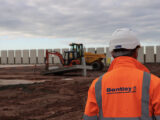
Interview Questions – ‘What do you think of the interview process so far?’
For Service-leavers who haven’t got recent interview experience, the prospect can seem daunting. Here, we dissect another of the more common but no less difficult interview questions so that you can show your best side to interviewers and land your next post-Services role.
‘What do you think of the interview process so far?’
Diplomacy
This is a character question designed to find out how good your people skills are.
Does the interviewer really care?
The interviewer is unlikely to need reassurance from you that their interviewing skills are up to snuff. However, the answer you give will help to demonstrate your ability to appraise a situation or colleague and offer feedback or criticism. This is likely to crop up in any number of roles where you’ll be working with people, so the question isn’t without cause.
Flattery
Tread carefully. The line between flattery and constructive feedback and criticism is a fine one. Fall into flattery and the interviewer will spot it and you’ll look a little spineless and silly. Overcook the critique and you’ll look too abrasive.
There’s no wrong answer…
Yes, there is: ‘I like Hitler’ is always the wrong answer, for example. In this case, ideally, you’re going to express an accurate and positive aspect of the process.
Don’t ask the interviewer how they think it’s going
You’re only tempting them to tighten the screw with an answer like: ‘average’, ‘OK’ or perhaps even, ‘badly’! Just answer the question.
The answer might include confirmation of your skills
Say something like: “I appreciated the part that required me to describe how I’d handle the trickier aspects of the job. It gave me an opportunity to tell you about how relevant my Forces background is.”
As always, try to discuss only the skills that are relevant to the role you’re going for.
Keep it brief
Although they did ask, don’t spiral into a deeper and deeper appraisal of the interview process. Asking a related question, perhaps about how a certain aspect of the job that’s not yet been covered, could be a great way to break out of a potentially awkward situation.
Reflect on the interview
You’ll usually have one of two feelings in the immediate aftermath of an interview. It’s either gone pretty well, or it’s gone badly, and you don’t want to work there anyway. As soon as you have the opportunity, reflect on how the interview went. Give yourself an opportunity to list strengths and weaknesses as you see them and how you really would feel about working at the organisation.
The answer you give yourself regarding how the interview process went, may help you sharpen up your skills and consider what kind of organisation you really do want to work with.



